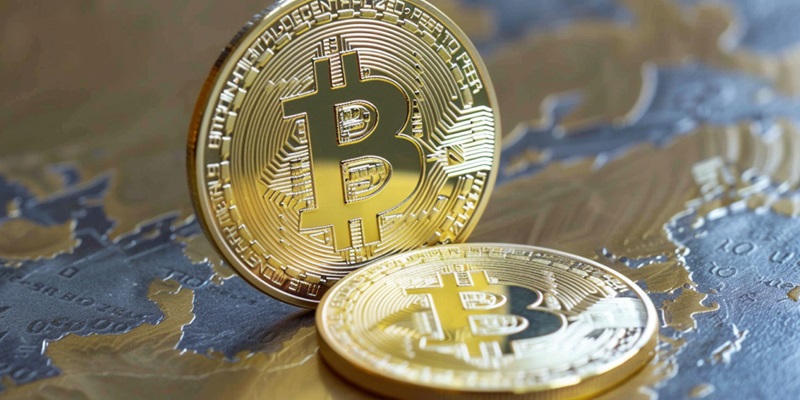The story of Dense_Spite3160, an early Bitcoin adopter, serves as a cautionary tale about the complexities and risks associated with cryptocurrency investments. Having mined Bitcoin on a basic laptop, Dense_Spite3160 stored part of his holdings on Mt. Gox, the world’s largest Bitcoin exchange at the time, which handled over 70% of global transactions. However, the 2014 collapse of Mt. Gox after hackers stole approximately 850,000 Bitcoins left him, along with many others, facing significant financial losses. Years later, driven by news of upcoming payouts to creditors, he revisited his plight, uncovering unexpected challenges in reclaiming his assets.
Rediscovery of a Lost Fortune
News Catalyst Sparks Reawakening
The recent news that Mt. Gox had begun payouts to creditors prompted Dense_Spite3160 to re-examine his old email account. In doing so, he discovered messages from the exchange’s legal team, including one from 2019 that acknowledged him as a creditor. This unexpected rediscovery reignited his hope of reclaiming a portion of his lost assets. However, his excitement quickly turned to frustration when attempts to recover his funds hit an unexpected roadblock. It became apparent that Mt. Gox had liquidated his account, citing failure to respond to earlier legal notices as the reason for forfeiture.
Feeling wronged by the situation, Dense_Spite3160 noted that these legal notices were inadequately communicated and primarily in Japanese, further complicating his understanding and timely response. The nuances of these communications, lost in translation for someone not proficient in Japanese, added another layer of difficulty to an already complex situation. Unfortunately, his realization came too late, and the lengthy period of inactivity turned out to be detrimental to recovering his assets.
Turning to Reddit for Assistance
In an effort to challenge Mt. Gox’s decision and gain better insight, Dense_Spite3160 turned to Reddit for legal advice. His appeal to the online community drew mixed reactions. On one hand, some users empathized with his plight, recognizing the challenges in navigating the legal complications post-collapse. They acknowledged that the lack of clear, accessible communication from Mt. Gox contributed to the predicament. On the other hand, critics were quick to point out the importance of personal responsibility in such high-stakes investments.
These critics emphasized that all communications from the exchange were bilingual, suggesting that he should have been more proactive. They argued that many other creditors managed to navigate the same process without significant issues, implying that Dense_Spite3160’s lack of timely action played a crucial role in his current predicament. This division in the community’s response highlights the broader conversations around individual responsibility versus systemic flaws within the evolving cryptocurrency landscape.
Broader Implications for Cryptocurrency Investors
Complexity and Risks of Early Investment
Dense_Spite3160’s story underscores the inherent complexities and risks early adopters of cryptocurrencies often face. When he initially stored his Bitcoin on Mt. Gox, the platform was highly trusted and processed a significant volume of global transactions. Following the exchange’s high-profile collapse, many investors experienced substantial financial losses. For those who have not closely followed ongoing recovery efforts, the legal path to reclaiming these assets has proven to be exceedingly intricate.
The regulatory landscape for cryptocurrencies has also evolved significantly since the Mt. Gox collapse, adding new layers of complexity. For early investors like Dense_Spite3160, staying informed about these changes is essential but can be enormously challenging. These regulations aim to prevent future catastrophes but often leave past victims caught in a web of legal and bureaucratic hurdles that are difficult to navigate without timely and accurate information.
Legal Recovery Challenges
The story of Dense_Spite3160 highlights the complexities and risks linked to cryptocurrency investments. Mining Bitcoin on a simple laptop, Dense_Spite3160 stored some of his holdings on Mt. Gox, which was, at the time, the world’s largest Bitcoin exchange, handling over 70% of all global transactions. However, in 2014, Mt. Gox suffered a catastrophic collapse due to hackers stealing approximately 850,000 Bitcoins, resulting in significant financial losses for him and many others. Years later, news of forthcoming payouts to creditors reignited his interest and led him to revisit his ordeal, only to discover unexpected obstacles in the process of reclaiming his assets. This serves as a cautionary tale about the volatile nature and inherent risks of digital currencies, reminding investors of the importance of due diligence and secure storage solutions. The landscape of cryptocurrency has matured since then, but the lessons learned from incidents like the Mt. Gox collapse remain relevant for today’s and future investors.

